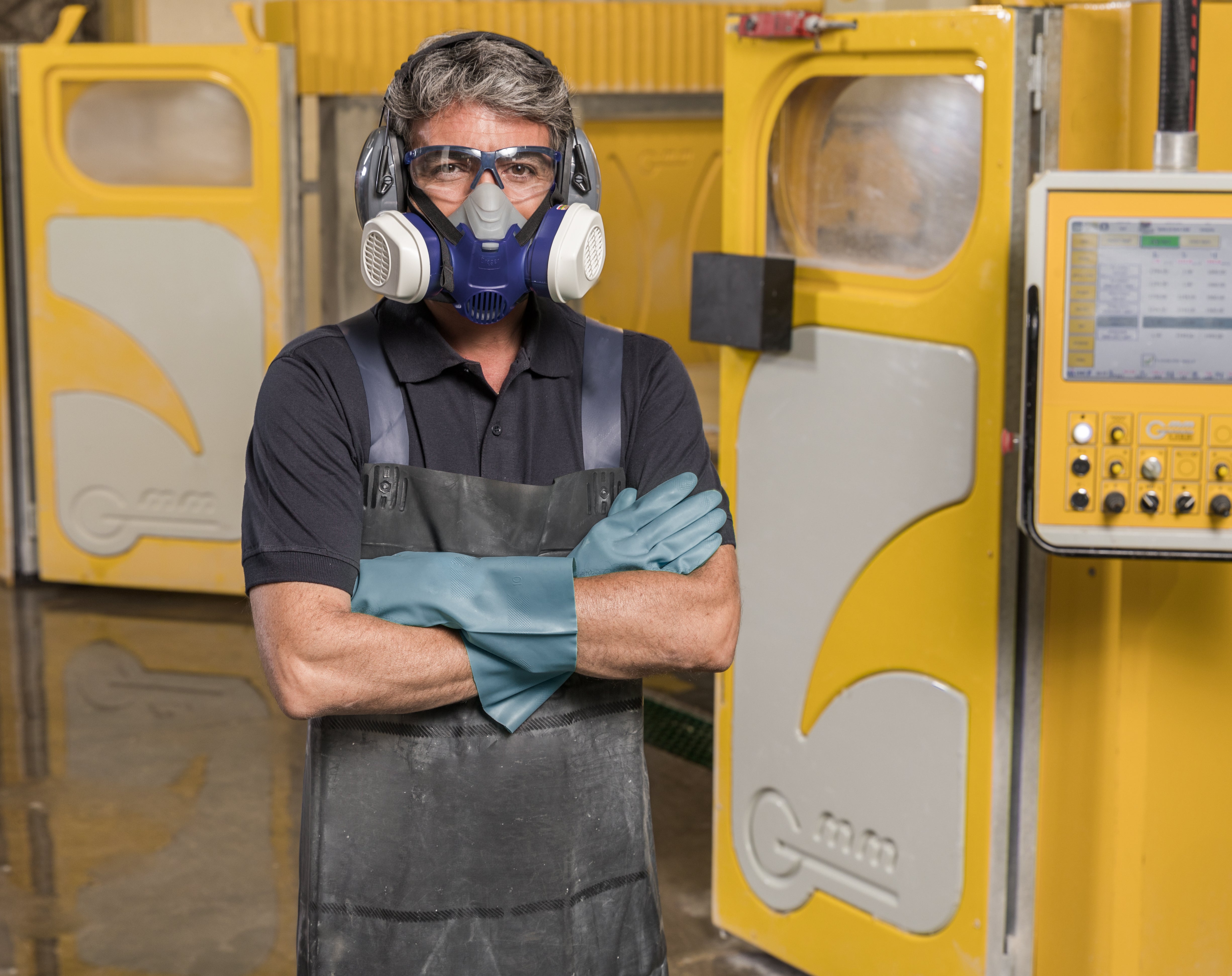Last fall a series of reports by NPR roiled the quartz industry. Nearly 20 fabrication workers had fallen ill with silicosis—an incurable lung disease caused by the inhalation of silica dust—after working with engineered stone. The risks of cutting quartz under improper conditions have long been known, but the reports brought the consequences of unsafe fabrication to harsh relief. As part of a broader effort to ensure greater workplace safety for fabricators, Israel-based quartz manufacturer Caesarstone is announcing Masters of Stone, an educational initiative with an emphasis on managing the dangers of silica dust.
“We understand that this is an ongoing concern and that there are a lot of unknowns out there,” Elizabeth Margles, Caesarstone’s vice president of marketing, tells BOH. The online portal has been in development for the past 18 months, but last year’s dire cases gave it a new meaning and urgency. “We know that our product is 100 percent safe after fabrication. [With this program,] we want to make sure it’s 100 percent safe during fabrication, as well.”
The instances of silicosis documented by NPR illustrate the complications of ensuring safety around engineered stone. The risk doesn’t come from the finished countertop, or in any particular brand (all quartz has silica in it). The cutting of the slab is where the danger lies—a process largely undertaken by a network of independent contractors.
Consumers—and even designers—can’t go to a stone supplier or a Ceasarstone showroom and order, say, the company’s 1111 Vivid White. “We sell to the fabricator—we verify that they are a certified dealer, and if they are, we release the slabs,” explains Margles. “If not, we go back to the fabricator and walk them through the process. That way, we know that the integrity of our product is carried through the supply chain.” The certification process had always involved a review of Caesarstone’s best practices and an on-site inspection.
“That’s still part of the process,” says Margles. “Part of this [new] program is the online learning modules, which mean that [fabricators] can take as many courses or learn about different techniques on a regular basis and in their own time. We’ll eventually start taking an approach much like continuing education—they have to keep on undertaking certain learnings to maintain certification.”
Consisting of professional seminars to be held around the country and a website for fabricators, Masters of Stone will be free and available to anyone in the industry, starting on February 3. Its online debut is preceded by seminars today and tomorrow in Las Vegas during The International Surface Event, the largest show for floor covering, stone and tile in North America.
Margles says the program is about creating a more formalized education process for their vendors in an industry where information about best practices can be hard to come by. The safety training is paramount, but the platform also offers an outlet for teaching fabricators about new technologies and techniques. While many of the seminars focus on health and safety issues like machinery maintenance, wearing a mask and maintaining clean air quality in workspaces, other topics include skill-related concepts like how to create a reverse-mitered edge.
While she acknowledges that the business may lose customers as the company moves toward making education mandatory, Margles says Caesarstone’s focus has been on encouraging best practices at every step on the supply chain. “We know what we do in our manufacturing process, but ultimately we’re a B2B company and once we drop off our product, it’s in the hands of the fabricators,” she says. “This program is an investment in their businesses and in making sure their employees are operating in a safe manner. We’re looking at it as an investment in the industry and in our customers.”
Caesarstone isn’t the only quartz maker to take action in the wake of the silicosis reports. Spanish engineered surfaces company Cosentino said in a statement that it is “deeply concerned and profoundly committed to the eradication of silicosis as a professional hazard,” and cited enhanced trainings as well as partnerships with the Natural Stone Institute, the Building Stone Institute, and the National Institute for Occupational Safety and Health.
Minneapolis-based surfaces company Cambria is also working on the issue. A representative told BOH that the company has long had safety protocols in place, and is formulating its own silicosis awareness campaign.
“There are so many good actors in this business, good fabricators who want to know [how to do better] and are coming to us with questions. And there are so many good architects and designers who want to do the right thing and take so much pride in what they do,” says Margles of the Caesarstone initiative. “This program will help [the industry] become a little more buttoned-down—clearer and more regimented and rigorous in regard to the product. That’s what we’re focused on.”
Homepage photo: Courtesy of Caesarstone





























